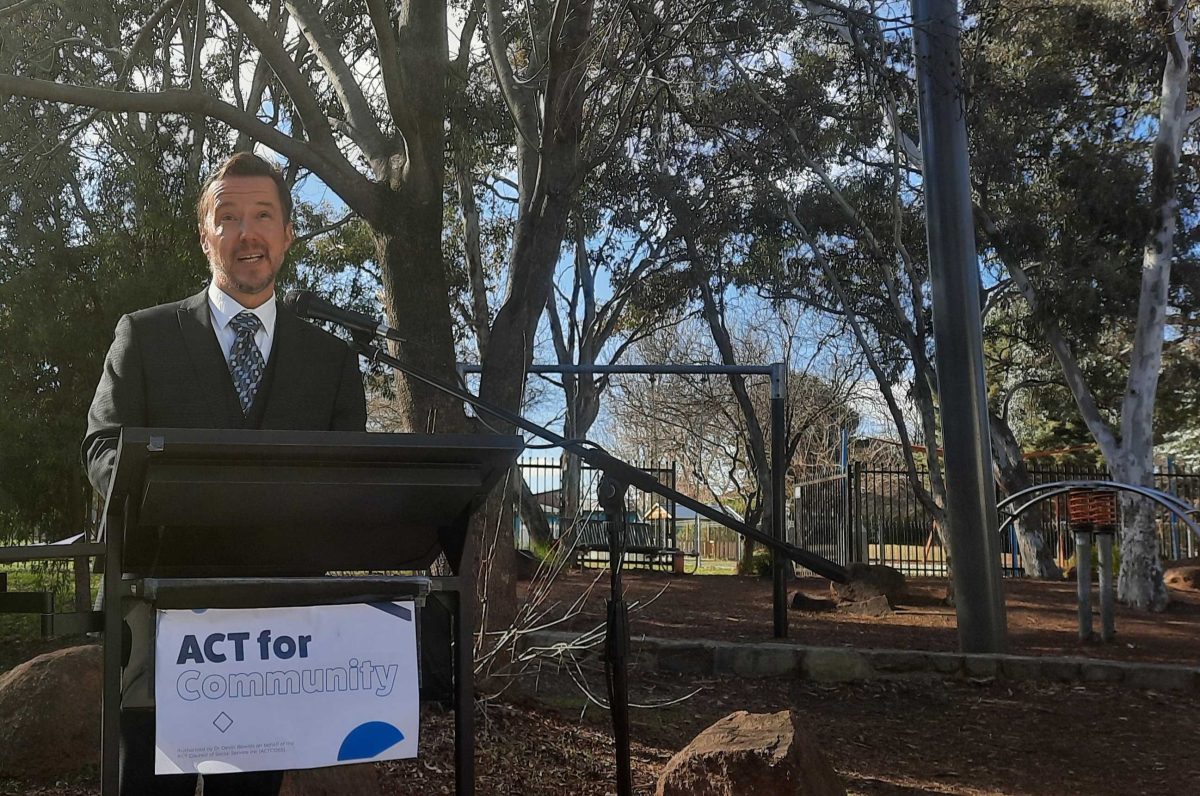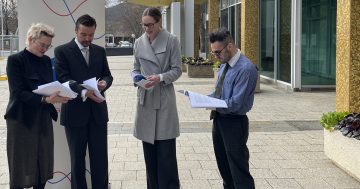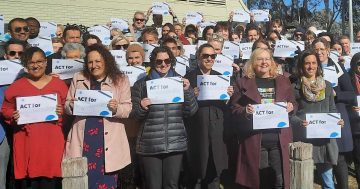
A new report looks at the impact of energy hardship in the ACT. Photo: EvoEnergy.
The ACT’s peak community sector body is calling on the Territory government to take decisive action to end energy hardship in the wake of a new report that shows many residents are unable to effectively heat or cool their homes.
As the capital braces for a string of 30-plus-degree days, the ACT Council of Social Service (ACTCOSS) has launched an analysis of energy hardship, which it says has taken a “significant human toll”.
ACTCOSS said the number of ACT residents struggling to pay their energy bills had increased by 78 per cent since 2021, highlighting an urgent need for comprehensive and immediate intervention.
It said priority groups, including low-income households and renters, were disproportionately affected by rising energy costs and inadequate housing conditions, leaving many unable to heat or cool their homes safely and affordably.
“High energy prices, combined with inefficient housing, low incomes, and outdated or inefficient appliances, have left many households trapped in a cycle of financial stress,” ACTCOSS CEO Dr Devin Bowles said.
“This is exacerbated by lack of access to consumer energy resources and the burden of market complexity.
“Renters face unique challenges as past poor building standards and split incentives prevent critical upgrades to energy efficiency in rental properties.”

ACTCOSS CEO Dr Devin Bowles is calling for swift action. Photo: Ian Bushnell.
Dr Bowles said the ACT Government should be praised for its leadership in the transition to a clean energy future, but that wasn’t enough.
“While the ACT leads Australia in clean energy policies, the benefits of this transition are not reaching everyone equally,” he said.
“Energy is essential for a healthy and dignified life. When families are forced to choose between heating or cooling their homes and buying food, we are failing as a community. This is a wake-up call for immediate, targeted action.”

Energy costs have been rising faster than incomes for more than a decade. Chart: AER.
Dr Bowles said the report underscored the devastating impacts of energy hardship, with low-income households spending up to five times more of their income on energy than high-income earners and more than 76 per cent of renters reporting cutting back on heating or cooling to manage costs.
He said older adults, people with disabilities, and those with chronic illnesses were disproportionately affected, often requiring higher energy usage for medical needs.
According to Dr Bowles, the human toll of energy hardship includes poor mental and physical health due to inadequate living conditions, an increased risk of homelessness driven by mounting energy debts, social isolation as families withdraw from community activities to save costs, and long-term financial insecurity, especially among older residents who deplete their retirement savings to cover energy bills.
The report outlines a roadmap to address energy hardship effectively, calling for:
- Minimum energy efficiency standards and incentives: Establish further standards to define baseline energy efficiency requirements for rental properties and incentivise landlords to improve the energy efficiency of rental homes.
- Reform of retailer hardship obligations: Ensure the focus is on preventing and alleviating hardship rather than on debt management and compliance.
- Accelerated energy efficiency upgrades: Fund moderate home energy efficiency measures and access to renewable energy resources for households with lower incomes.
- Measures to end long-term energy hardship: Set targets to end chronic energy hardship, review the functioning of utility concessions and energy support voucher schemes and improve cross-portfolio cooperation.
- Enhanced consumer support: Establishing a one-stop shop with case management services to help priority households navigate upgrades and financial assistance while increasing funding for ancillary supports such as financial counselling services.
- Amplified advocacy: Provide sustainable funding for consumer advocates to ensure vulnerable groups have a voice in the energy transition process.
“We need bold and immediate action to protect our most vulnerable residents,” Dr Bowles said.
“Policymakers must prioritise ending energy hardship as a critical goal, setting clear targets and allocating the resources necessary to achieve them.
“The time for incremental change is over. We must act decisively to ensure every household in the ACT can afford safe and reliable energy. Without swift intervention, the human and economic costs of this crisis will continue to mount.”
Region has approached the ACT Government for comment.




















